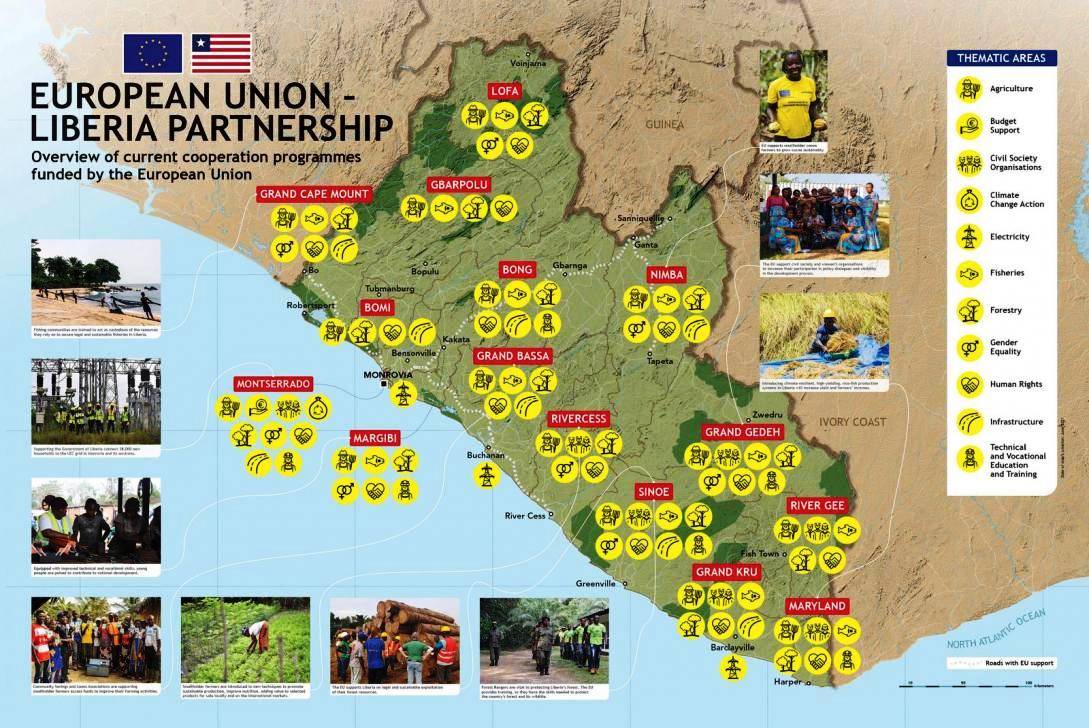The European Union, EU for short; support to vital institutions in Liberia in enhancing the recovery from the shacks of the Liberian Civil War and is gradually placing the Country on a good economic footing, has been visible since the existence of the EU- Liberia Cooperation or Partnership
Beneficiaries of the EU generosity include Liberia Reconstruction and Rehabilitation Trust Fund and the government’s Pro-Poor Agenda for Prosperity and Development.
The EU aligns its assistance initiatives with the Liberia Reconstruction Trust Fund, facilitating Road, Water, and Sanitation as well as Waste collection.
The EU also finds general budget support to free resources and addresses important investments such as Payment of Teachers, Nurses, and Doctors.
The EU document said all cooperation activities in Liberia are aligned to Capacity building, Conflict sensitive development, Human Rights, Youth, Environment, and the fight against HIV/AIDS.
” As of January 2019, the EU Portfolio in Liberia has 22 projects with a total of Euro 21.65 Million total disagreements of euro 30.678 248 million projects, and approval by the European Commission; document revenue.
The projects are also aligned with the four pillars of the government of Liberia’s Pro-Poor Agenda for Prosperity and Development.
Pillar One- Power to the People
Pillar Two- Economic & Job Creation
Pillar Three- Sustaining Peace
Pillar Four- Governance and Transparency
Further alignment to EU Portfolio under its 11th. EDP for the period 2014 – 2020 covers the following sectors;
The indicative amount for Good Governance stood at US$125.6 Million; Energy at US$ 117 Million, Education at US$37 Million, and Agriculture at US$35 Million, the EU paper revealed.
Meanwhile the Government of Liberia and the EU Delegation last year hosted a 2-day Policy dialogue to review the portfolio of the EU initiative in Liberia.
The objective is to improve Aid transparency through government decision-making and to bring together Stakeholders.
The review will identify Challenges, Lessons learned and make recommendations for improvement in the implementation of the EU-funded projects in the future.
The principle of the Paris Declaration on Aid effectiveness and the subsequent multilateral decisions recognize that each Country has primary responsibility for its development programs. Development assistance must be Country led and donors and recipients have a shared responsibility to ensure the successful implementation of assistance activities.
